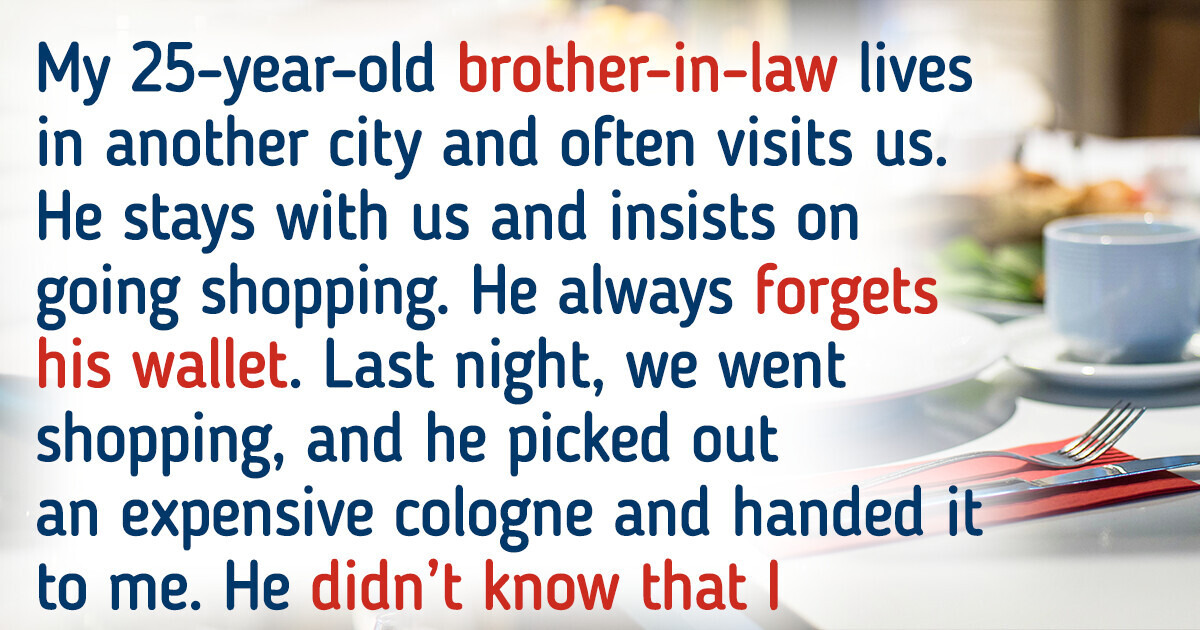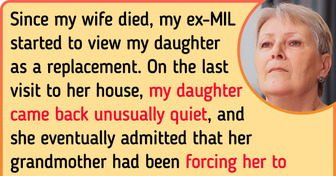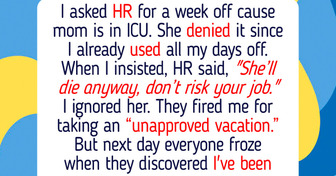There's no way I would have actually left my wallet at home to prove a point to anyone. Sounds like you left your backbone at home all the other times. You paid for his other stuff because you wanted to, not because you had to. No one held a p!stol to your head and made you do it! In fact, since he's a grown married man and you're a grown married woman, it was inappropriate for you to be paying for all his stuff. Why did you, your husband and his wife allow this to happen for so long? Unless some of the things he was getting was for his wife as well and your husband also has no backbone. That's the only thing that makes sense. This is insane! Children, I could kind of understand, but I can't even believe this is a conversation involving adults!
My Brother-in-Law Never Pays His Share, So I Gave Him a Dose of His Own Medicine

We all know that one person who somehow always avoids paying—but what happens when it’s your brother-in-law? One fed-up woman finally took a bold step to stop her brother-in-law from taking advantage of her generosity. After reaching her breaking point, she took matters into her own hands. Now, she’s wondering—did she go too far?
Hi Bright Side,
I really need your advice on how to deal with a tricky family member. I have a brother-in-law who’s driving me up the wall, and I’m wondering if I handled the situation the right way or if I went too far.
So, here’s the story. My 25-year-old brother-in-law lives in another city and often visits us. He always stays with us and whenever we go out, he always insists on going shopping. Whether it’s clothes, gaming kits, or little luxuries, he never offers to pay for himself. He always “forgets his wallet”.
If I bring it up, he either laughs it off or says that since I earn more than him, I should be the one covering his expenses—not his wife or brother, but me. And yes, I do make a decent income, but I can’t keep footing the bill every single time. In the past, I’ve paid for things and asked him to pay me back, but he never did.
Last night, we went shopping, and he picked out an expensive cologne and handed it to me at checkout. Then I decided I’d had enough. Here’s where it gets interesting— he didn’t know that I pulled a trick.
Before we left, I made it clear that I wouldn’t be paying for him this time. As we were getting ready, I pretended I had forgotten something inside, went back to the room, and left my wallet there. I was sure he had his. When we got to the register and the cashier asked for payment, I acted surprised and told him, “I forgot my wallet.”
He was furious, saying I crossed a line by leaving my wallet at home, claiming I made him look bad.
All the best,
Jessica
Thanks for reaching out for help, Jessica. We hope that our advice can give you a fresh perspective on how to handle this situation.
Why do people hesitate to spend money:
People may underspend for several reasons. Fear of running out of money, often shaped by past financial hardships or a deep-seated fear of poverty, can make spending difficult. Lifelong habits of saving and frugality can also be hard to break, even when circumstances improve. Additionally, a lack of confidence in financial planning may lead people to save excessively as a precaution.
How to set boundaries with a freeloader:
Handling a freeloader family member can be tough, but setting clear expectations upfront helps prevent awkward situations. It’s important to stay firm and refuse to cover for them, as giving in only encourages their behavior.
Avoid lending money or agreeing to be paid back later, since moochers often have excuses ready. If the problem continues, have an honest conversation about how their behavior affects the bond. If they refuse to change, it may be best to distance yourself.
Here’s how you can handle things more easily next time:
- Make him pay first: Suggest activities where he has to pay upfront, like booking tickets for a show. When he’s already spent money, it’ll be harder for him to avoid paying later.
- Choose a cheaper way to do things together: Offer plans that don’t involve expensive dinners. Cook together, watch a movie, or find free events nearby. You’ll still have a good time without spending too much.
- Pick places together: If he likes fancy spots, suggest planning together and say, “I’m on a budget this time. Let’s pick a place that works for both of us.” This helps keep things fair.
- Try his trick: Next time, just before leaving, say you forgot your wallet too, and see how he reacts. It might make him realize how it feels!
Even though family should be a source of support, this man shared how his sister-in-law’s attempt to expose a family secret ended up backfiring.
Comments
Nope, your BIL made himself look bad, but being a leech and a freeloader. However, saying no and walking away should also suffice. You are absolutely and 100% allowed to say no, and mean it. No explanation necessary because No is a complete sentence and you shouldn't have to explain your decisions to anyone.
If this is your husband's brother he needs to take care of it, tell him his brother is no longer your problem and he needs to deal with him. And stop paying for stuff period!
Related Reads
My Parents Expected Me to Spend My Money on Them Because I Am Childless, but I Refused

My Future MIL Publicly Shamed Me — I Made Her Regret It

My Ex-MIL Has Been Manipulating My Daughter Ever Since My Wife Died

12 True Stories That Can Mend a Broken Heart Stitch by Stitch

I Gave My MIL a Fake House Key and Shamed Her in Front of the Whole Family

My Mother-in-Law Accused Me of Stealing, Karma Stepped In With a Twist

I’ve Uncovered That My Husband Had Secretly Installed a Camera in Our House — I’m Filing for Divorce

15+ Times an Unexpected Guest Turned an Ordinary Day Into a Scene Straight Out of a Movie

I Refuse to Return My Late Colleague’s Paycheck, Now His Widow Is Furious

17 Stories That Prove Kindness Isn’t Naive, It’s Courage in Disguise

22 Moments That Prove Quiet Kindness Can Work Real Miracles

I Was Fired for Taking Days Off During a Family Emergency





